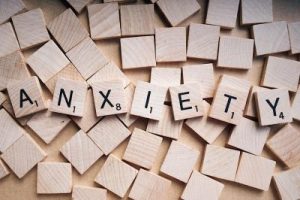Anxiety is a response that is intended to prepare the body and mind for potential threats and situations where we need to be alert and responsive.
A reminder – ‘fight, flight or freeze’
Fight, flight or freeze is a survival mechanism. It prepares us to fight for our survival or run away when we perceive to be under threat. It is, therefore, a natural and automatic response when we believe that we are facing danger.
Some people will only know the fight or flight feelings and symptoms when they are facing significant threats, such as an imminent risk of harm or death. Others will feel anxious when facing less significant threats.
A sizeable percentage of the population even see the responses trigger, not because they are facing a threat, but because they think that a threat could potentially happen in the future. If the probability of the danger occurring is high, then the response may be reasonable. However, for many, the response can be triggered even if the probability is low and the threat unlikely or being triggered. This can happen as a result of someone processing a series of ‘what-if’ scenarios or ruminating over what might happen.
It is not uncommon to find people feeling anxious because they are worried that they might become anxious in a particular situation.
When is my anxiety a mental health problem?
Anxiety can become a mental health problem if it impacts on your ability to live your life as fully as you want to. For example, it may be a problem for you if:
- the feelings of anxiety are very strong or last for a long time
- your fears or worries are out of proportion to the situation you are facing
- your anxiety is the result of processing various ‘what-if’ scenarios that have a low probability of occurring.
- you avoid situations that might cause you to feel anxious
- your worries feel very distressing or are hard to control
- you regularly experience symptoms of anxiety, which may include panic attacks
- you find it hard to go about your everyday life or do things you enjoy.
- your relationships or work are being adversely impacted by your anxious feelings
Depending upon when your anxiety occurs, what triggers it, and the feelings and symptoms you have, you may be diagnosed with a particular type of anxiety disorder. It is also possible that you can feel these types of symptoms without fitting into a specific diagnosis. We will explore these different types of anxiety in the next article.
What should I do if I suspect I have anxiety?
If you are affected by one or more of the above scenarios, you may be experiencing anxiety. It is important that you don’t worry about this, as this can cause even more anxiety. Instead, you should contact your doctor or a mental health professional to confirm whether or not you are affected by anxiety or the feelings you have are caused by something else.
As we’ll see from a future article, there are many things that can be done to relieve the anxious feelings, and even ways of reducing the triggering of the anxiety in the first place.
What we know is that the vast majority of people who are experiencing anxiety in a way that impacts their happiness or functionality find relief. Some will learn self help coping mechanisms, some will learn to manage the scenarios they are in, and some may also use medication to help them manage their anxiety. It is important to know that help is available, and you shouldn’t be afraid of talking about your feelings of anxiety.
You can also contact Aspire Counselling for in-person or secure online video counselling.
Maria Luedeke at Aspire Counselling, Singapore is a qualified Counsellor who works with people wanting to improve their mental health. Maria is highly experienced when it comes to anxiety and can utilise a number of techniques to help you. Maria works with both adults and adolescents, needing help and support for anxiety and other issues. Maria is available to provide support and guidance both face to face and over secure video counselling, working both locally and internationally.





